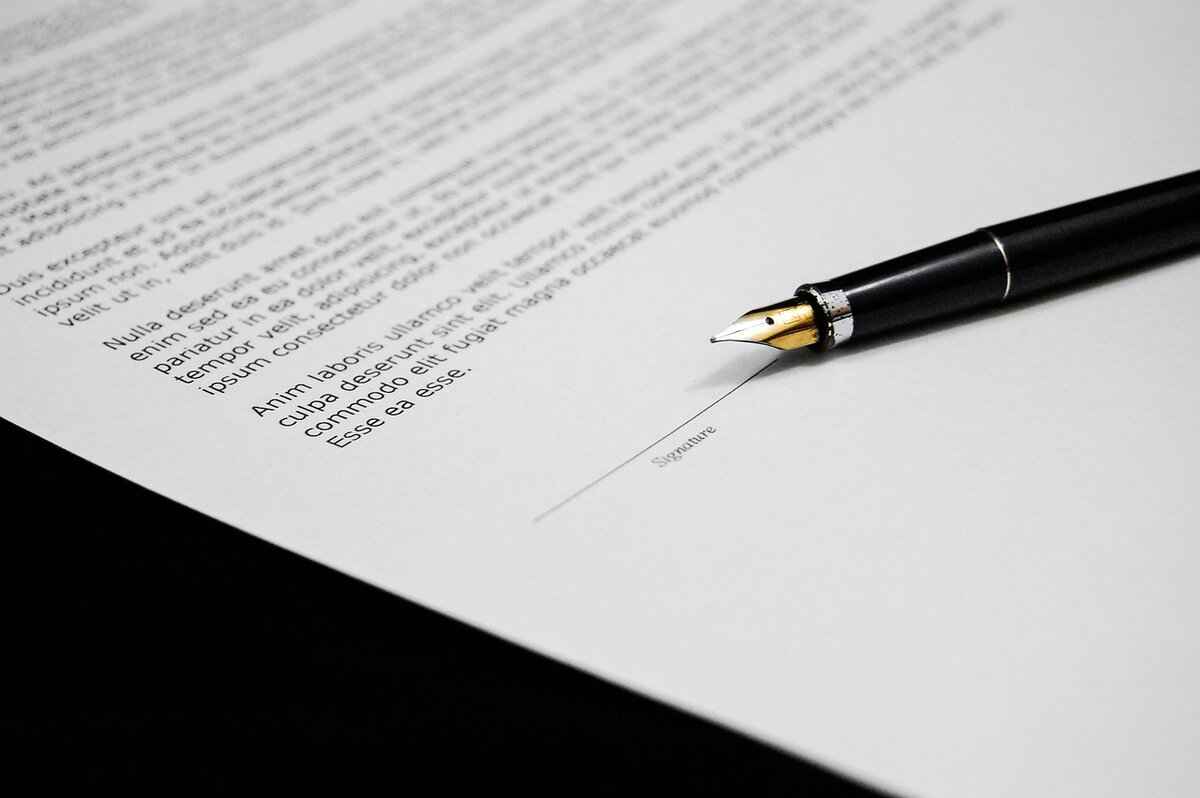This article outlines essential documents required for filing a lawsuit, guiding you through the necessary preparations to ensure a smooth legal process. Understanding the importance of having the right documentation can significantly affect the outcome of your case.
Understanding the Importance of Documentation
Documentation serves as the backbone of any legal case. It not only supports your claims but also helps your attorney build a strong argument. Without proper documentation, your case may lack credibility, leading to unfavorable outcomes.
Identifying the Type of Lawsuit
Before gathering documents, it’s crucial to identify the type of lawsuit you are filing, as different cases require specific documents and information.
- Civil Lawsuits: These often involve disputes between individuals or entities. Essential documents may include contracts, emails, and other communications relevant to the dispute.
- Criminal Lawsuits: In these cases, documentation focuses on evidence of wrongdoing, such as police reports, witness statements, and forensic evidence.
Gathering Evidence and Supporting Documents
Collecting evidence is vital for substantiating your claims. Here are some types of evidence you may need:
- Witness Statements: These provide firsthand accounts that can bolster your claims in court.
- Photographic Evidence: Photographs can capture visual details that may be pivotal to your lawsuit’s success.
Legal Documents Required for Filing
There are certain legal documents that are mandatory when initiating a lawsuit. Understanding these can streamline the filing process:
- Complaint or Petition: This outlines your case and the legal basis for your claims, forming the cornerstone of your lawsuit.
- Summons: This document notifies the defendant of the lawsuit and provides essential information about the court proceedings.
Financial Documents to Consider
Financial documentation can be critical, especially in cases involving damages or compensation claims. Here are some necessary financial records:
- Tax Returns: These may be required to establish income levels, particularly in personal injury or employment-related lawsuits.
- Invoices and Receipts: Essential for proving financial losses incurred due to the defendant’s actions, providing a clear record of expenses.
Preparing for Discovery
Discovery is a phase in litigation where parties exchange information. Being prepared with relevant documents can strengthen your position:
- Interrogatories: These are written questions that one party sends to another, requiring detailed responses that can reveal important facts about the case.
- Requests for Production: These compel the opposing party to provide specific documents or evidence, crucial for building your case.
Consulting with Legal Counsel
Working with an attorney can provide invaluable guidance on the documentation needed, ensuring that you meet all legal requirements and deadlines:
- Understanding Legal Terminology: A lawyer can help clarify complex legal terms and processes, making it easier for you to understand the documentation involved in your case.
- Strategizing Your Case: An attorney can assist in strategizing your case based on the documents collected, helping to form a compelling argument for your lawsuit.
In summary, preparing the right documents is a critical step in filing a lawsuit. By understanding the types of documents required and consulting with legal counsel, you can enhance your chances of a successful outcome.

Understanding the Importance of Documentation
is a critical aspect of navigating the legal landscape. In any lawsuit, documentation serves as the backbone of your case. It not only lays the groundwork for your legal arguments but also plays a pivotal role in influencing the outcome. Without adequate documentation, your claims may lack the necessary support, making it challenging to convince the court of your position.
When you prepare for a lawsuit, it is essential to recognize that the documents you gather can significantly affect the proceedings. They can include anything from contracts and emails to photographs and witness statements. Each piece of documentation can either strengthen your case or weaken it, depending on how well it supports your claims.
Moreover, documentation provides a clear timeline of events, which is vital for establishing facts. Courts often rely on documented evidence to ascertain the credibility of claims made by both parties. For instance, in a civil lawsuit, presenting a well-organized collection of documents can help demonstrate the sequence of events that led to the dispute, thereby clarifying your position.
In the realm of criminal lawsuits, documentation takes on an even more critical role. The prosecution must provide evidence that meets the burden of proof, and this evidence is often derived from various documents such as police reports, forensic analysis, and witness testimonies. Conversely, the defense will also rely on documentation to counter the prosecution’s claims, making the quality and comprehensiveness of all documents essential.
Furthermore, the process of discovery in litigation highlights the importance of thorough documentation. During discovery, both parties exchange relevant documents and information. This phase can be a game-changer, as it allows each side to assess the strengths and weaknesses of the other’s case. Having well-prepared documents can enhance your negotiating position and potentially lead to a favorable settlement before the trial begins.
It’s also worth noting that the quality of documentation can impact the judge’s perception of your case. Well-organized and clearly presented documents can convey professionalism and preparedness, which can resonate positively with the court. On the other hand, disorganized or incomplete documentation may lead to skepticism regarding the validity of your claims.
To summarize, the importance of documentation in a lawsuit cannot be overstated. It forms the foundation of your legal arguments, influences the court’s perception, and plays a crucial role in the discovery process. By understanding the significance of gathering and organizing your documents effectively, you can significantly enhance your chances of a favorable outcome in your legal proceedings.

Identifying the Type of Lawsuit
When embarking on the journey of filing a lawsuit, one of the first and most critical steps is you are pursuing. This initial determination is essential because different types of lawsuits require distinct sets of documents and information to support your case effectively. Understanding the nature of your lawsuit not only streamlines the documentation process but also enhances your chances of success.
There are several categories of lawsuits, each with its unique requirements:
- Civil Lawsuits: These involve disputes between individuals or organizations, often related to issues such as contracts, property disputes, or personal injury claims. In civil cases, you will need to gather evidence that supports your claims, including contracts, correspondence, and any relevant documentation that can substantiate your position.
- Criminal Lawsuits: These cases are initiated by the government against an individual accused of violating laws. Documentation in criminal cases often includes police reports, witness statements, and evidence collected during the investigation. Understanding the specifics of the charges can help in gathering the necessary documentation.
- Family Law Cases: Lawsuits related to divorce, child custody, and support require specific documents such as marriage certificates, financial statements, and evidence of parental fitness. The emotional nature of these cases often necessitates thorough documentation to support claims regarding child welfare.
- Employment Law Cases: If you are filing a lawsuit related to workplace issues, such as wrongful termination or discrimination, you will need to gather employment records, performance reviews, and any correspondence that supports your claims.
By clearly identifying the type of lawsuit you are filing, you can tailor your document collection to meet the specific requirements of your case. For instance, a personal injury lawsuit will necessitate medical records and evidence of damages, while a contract dispute may require copies of the contract and any communications related to the breach.
It is also important to consider the jurisdiction in which you are filing your lawsuit. Different states or federal courts may have varying requirements regarding documentation. Therefore, familiarizing yourself with the local rules and regulations is crucial. Consulting with a legal professional can provide clarity on these requirements and help you navigate the complexities of the legal system.
Moreover, understanding the purpose of each document you collect is vital. For example, the complaint or petition serves as the foundation of your case, outlining your claims and the legal basis for them. A summons is necessary to notify the defendant of the lawsuit and inform them of their rights and obligations. Each document plays a crucial role in the overall structure of your case.
In conclusion, taking the time to accurately identify the type of lawsuit you are filing is a critical step in the legal process. By doing so, you can ensure that you gather the appropriate documentation and prepare effectively for your case. This preparation not only aids in presenting a strong argument but also helps to avoid unnecessary delays or complications in the legal proceedings.
Civil Lawsuits
represent a significant aspect of the legal landscape, dealing with disputes between individuals or entities that typically involve issues such as contracts, property, and personal injury. These cases require a well-prepared foundation of evidence and documentation to effectively support your claims in court. Understanding the nuances of civil lawsuits is essential for anyone considering legal action.
When engaging in a civil lawsuit, it is crucial to recognize that the burden of proof lies with the plaintiff. This means you must provide sufficient evidence to substantiate your claims. The types of evidence required can vary significantly based on the nature of the dispute. For instance, in a breach of contract case, you may need to present the original contract, correspondence between the parties, and records of any related transactions.
In civil lawsuits, the following types of evidence are generally necessary:
- Documentary Evidence: This includes contracts, emails, invoices, and any other written materials that can help establish the facts of the case.
- Witness Testimonies: Eyewitness accounts can provide valuable insights and strengthen your position. It is advisable to collect statements from individuals who can corroborate your version of events.
- Expert Opinions: In complex cases, expert witnesses may be required to provide specialized knowledge that supports your claims.
Preparation is key in civil lawsuits. Before filing, you should gather all relevant documentation that supports your claims. This includes:
- Correspondence: Any emails, letters, or messages exchanged with the opposing party can be used to demonstrate the context of the dispute.
- Financial Records: If your lawsuit involves financial losses, such as in personal injury cases, make sure to compile tax returns, pay stubs, and expense receipts.
- Photographs and Videos: Visual evidence can be compelling, particularly in cases involving property damage or personal injury.
Initiating a civil lawsuit requires specific legal documents to be filed with the court. The most critical documents include:
- Complaint: This document outlines your case, detailing the facts and legal basis for your claims.
- Summons: A summons is a legal notice to the defendant informing them of the lawsuit and their obligation to respond.
Once a lawsuit is filed, the discovery phase begins. This stage allows both parties to exchange information and gather evidence. Being prepared for discovery is vital, as it can significantly influence the outcome of your case. Key components of discovery include:
- Interrogatories: Written questions sent to the opposing party that must be answered under oath.
- Requests for Production: A formal request for documents or evidence that the opposing party possesses.
Engaging with an experienced attorney can enhance your chances of success in a civil lawsuit. A lawyer can provide guidance on:
- Document Preparation: Ensuring that all necessary documents are correctly prepared and submitted.
- Legal Strategy: Developing a comprehensive strategy based on the evidence and documentation available.
In conclusion, civil lawsuits require meticulous preparation and a thorough understanding of the necessary documentation. By gathering the right evidence and consulting with legal professionals, you can build a strong case that effectively communicates your claims and supports your position in court.
Criminal Lawsuits
When discussing , it is important to understand how the documentation process differs from civil lawsuits. In criminal cases, the focus is primarily on establishing evidence of wrongdoing, which includes a variety of documents that serve to substantiate the charges brought against a defendant.
One of the key documents in a criminal case is the police report. This report is generated by law enforcement officers who respond to an incident and document their findings, including witness accounts and evidence collected at the scene. These reports are critical as they provide a factual basis for the charges filed and often contain the initial statements made by witnesses and suspects.
In addition to police reports, witness statements play a pivotal role in criminal cases. These statements can be gathered from individuals who observed the alleged crime or have relevant information. Witnesses may provide firsthand accounts that can either support or contradict the prosecution’s case. The reliability and credibility of these witnesses can significantly influence the outcome of the trial.
| Type of Document | Description |
|---|---|
| Police Reports | Documents created by law enforcement detailing the facts of the case. |
| Witness Statements | Recorded accounts from individuals who witnessed the crime. |
| Forensic Evidence | Scientific evidence such as DNA, fingerprints, or ballistic reports. |
| Surveillance Footage | Video evidence that may capture the crime or relevant events. |
Another crucial component of criminal documentation is forensic evidence. This type of evidence is obtained through scientific methods and can include DNA analysis, fingerprinting, and other forms of physical evidence that link a suspect to the crime. Forensic evidence can be instrumental in establishing guilt or innocence and is often scrutinized for its reliability in court.
Furthermore, surveillance footage from cameras in public spaces or private properties can provide visual evidence of the crime in question. This type of documentation is particularly valuable as it can either corroborate witness statements or provide evidence that contradicts them.
In contrast to civil lawsuits, where the burden of proof is generally lower, criminal cases require the prosecution to establish guilt beyond a reasonable doubt. This high standard necessitates comprehensive documentation and a well-structured presentation of evidence. The defense also has the right to collect evidence and challenge the prosecution’s claims, which adds another layer of complexity to the documentation process.
Ultimately, the documentation in criminal lawsuits serves as the backbone of the prosecution’s case. It is essential for both sides to meticulously gather and present their evidence, as the stakes are often much higher than in civil cases. A thorough understanding of the types of documents involved and their significance can greatly impact the direction and outcome of a criminal trial.
As you prepare for a criminal lawsuit, it is advisable to consult with an experienced attorney who can guide you through the complexities of the legal process. They can help ensure that all necessary documentation is collected and presented effectively, maximizing your chances for a favorable outcome.

Gathering Evidence and Supporting Documents
is a critical step in the legal process, as it lays the groundwork for your case and helps establish the validity of your claims. Whether you are pursuing a civil or criminal lawsuit, the type and quality of evidence you collect can significantly influence the outcome of your case. In this section, we will explore the various types of evidence you may need to gather and why they are essential.
First and foremost, understanding the types of evidence is crucial. Evidence can be classified into several categories:
- Documentary Evidence: This includes any written documents that support your claims, such as contracts, emails, or official reports.
- Physical Evidence: Tangible items that can be presented in court, such as damaged property or products relevant to your case.
- Testimonial Evidence: Statements from witnesses who can provide firsthand accounts related to your case.
- Demonstrative Evidence: This includes charts, diagrams, or models used to illustrate points during a trial.
Among these, witness statements hold significant weight. They provide firsthand accounts that can corroborate your claims. When gathering witness statements, ensure that they are detailed and cover all relevant aspects of the incident. It is advisable to obtain written statements whenever possible, as they can be more reliable than verbal accounts.
Photographic evidence is another powerful tool in your arsenal. Images can capture critical details that might otherwise be overlooked. For instance, photographs of an accident scene can provide context and clarity regarding the circumstances surrounding the event. Ensure that these images are clear, timestamped, and accurately depict the situation.
In addition to witness statements and photographs, expert opinions can also be beneficial, especially in complex cases. Experts can provide insights based on their specialized knowledge, which can help substantiate your claims. For example, in a medical malpractice case, a qualified medical professional can evaluate the actions of the defendant and offer an opinion on whether they met the standard of care.
Furthermore, financial documents play a crucial role, particularly in cases involving damages. Items such as tax returns, invoices, and receipts can help illustrate the financial impact of the defendant’s actions on your life. These documents provide a clear record of losses and can be pivotal in justifying your claims for compensation.
As you gather evidence, it is also essential to prepare for the discovery phase of litigation. This phase involves exchanging information between parties, and having relevant documents ready can significantly strengthen your position. During discovery, you may encounter:
- Interrogatories: Written questions that require detailed responses from the opposing party.
- Requests for Production: Formal requests for specific documents or evidence from the other party.
Being well-prepared for these requests can help ensure that you have all necessary evidence at your disposal.
Lastly, consulting with legal counsel is highly recommended. An experienced attorney can guide you through the evidence-gathering process, helping you understand what is necessary for your specific case. They can also assist in strategizing how to present your evidence effectively in court.
In summary, gathering evidence and supporting documents is an essential component of preparing for a lawsuit. By collecting various types of evidence, including witness statements, photographs, expert opinions, and financial records, you can build a strong case that substantiates your claims. Working closely with legal counsel will further enhance your ability to navigate the complexities of the legal process.
Witness Statements
play a pivotal role in the legal process, serving as a vital form of evidence in both civil and criminal cases. These statements provide firsthand accounts of events, offering a narrative that can significantly bolster your claims in court. Understanding their importance and how to effectively gather and present them is crucial for any legal proceeding.
When preparing for a lawsuit, it is essential to recognize that witness statements can serve as a powerful tool in establishing the facts of your case. They provide a firsthand perspective that can corroborate your version of events, lending credibility to your arguments. In many instances, the testimony of a witness can be the difference between winning and losing a case.
Witness statements can vary in formality and detail, but they generally include the following elements:
- Identification of the Witness: This includes the full name, address, and contact information of the individual providing the statement.
- Details of the Incident: A comprehensive description of what the witness observed, including dates, times, and locations.
- Relevance to the Case: An explanation of how the witness’s account supports your claims or contradicts the opposing party’s narrative.
It is crucial to collect witness statements as soon as possible after an incident occurs. Memories can fade, and witnesses may become difficult to locate over time. Additionally, having statements documented early can help establish a timeline of events that is beneficial for your case.
Gathering witness statements effectively involves several key steps:
- Identify Potential Witnesses: Consider individuals who were present during the incident or who may have relevant information. This could include bystanders, friends, or even experts in the field.
- Conduct Interviews: Approach potential witnesses in a non-confrontational manner. Ask open-ended questions to encourage them to share their observations in detail.
- Document Everything: Record the witness’s statement accurately, either through written notes or audio recordings (with their permission). Ensure that the statement is signed and dated by the witness.
While witness statements can be incredibly powerful, there are legal considerations to keep in mind:
- Hearsay Rules: In many jurisdictions, statements made outside of court may be deemed hearsay and could be inadmissible unless they fall under certain exceptions.
- Credibility Issues: The credibility of a witness can be challenged based on their relationship to the parties involved, their motives, or any inconsistencies in their statements.
To mitigate these issues, it is advisable to work closely with your attorney to ensure that the witness statements are prepared in a manner that adheres to legal standards and effectively supports your case.
In summary, witness statements are an invaluable resource in legal proceedings, providing essential support for your claims. They can help establish the facts of the case and enhance your overall argument. By understanding how to gather and utilize these statements effectively, you can significantly strengthen your position in court.
Photographic Evidence
In the realm of legal proceedings, plays a pivotal role that cannot be overstated. These images can encapsulate critical moments and details that are essential for substantiating claims and arguments in court. When you are preparing for a lawsuit, understanding the significance of photographs as evidence is crucial for building a strong case.
Photographs serve multiple purposes in legal contexts. They can document accidents, injuries, and even property damage, providing a visual narrative that complements written evidence. For instance, in personal injury cases, images of the scene where the incident occurred can illustrate conditions that contributed to the event, such as poor lighting or hazardous obstacles. This visual documentation can be compelling in demonstrating liability.
Moreover, photographs can also capture the emotional impact of an incident. Images showing the aftermath of an event can evoke empathy from judges and juries, making them more likely to understand the full scope of the situation. For example, photographs depicting an injured party’s pain and suffering can be instrumental in personal injury lawsuits where compensation for emotional distress is sought.
When collecting photographic evidence, it is essential to ensure that the images are clear, relevant, and properly documented. Here are some important considerations:
- Quality of Images: Ensure that photographs are high-resolution and well-lit. Blurry or poorly framed images may not hold up in court.
- Contextual Information: Include details such as the date, time, and location where the photographs were taken. This information adds credibility to the evidence.
- Chain of Custody: Maintain a clear record of who has handled the photographs to prevent claims of tampering or manipulation.
In addition to documenting the incident itself, photographs can also be used to illustrate medical treatments and recovery processes. For instance, images showing surgical procedures or rehabilitation efforts can provide evidence of the extent of injuries and the impact they have had on a person’s life.
Furthermore, in cases involving property disputes, photographs can serve as a record of the condition of the property before and after a dispute arises. This can be particularly useful in cases of landlord-tenant disputes or insurance claims, where the state of the property is a key factor in determining liability and compensation.
It is also important to note that while photographs can be powerful evidence, they should be used in conjunction with other forms of documentation. Written reports, witness statements, and expert testimony can provide a comprehensive view of the situation, enhancing the effectiveness of the photographic evidence.
In conclusion, the importance of photographic evidence in legal proceedings cannot be underestimated. By capturing crucial visual details, photographs can significantly influence the outcome of a lawsuit. When preparing for your case, ensure that you gather and present photographic evidence thoughtfully and strategically, as it can be a decisive factor in persuading the court in your favor.

Legal Documents Required for Filing
When considering the initiation of a lawsuit, it is essential to recognize that certain legal documents are not just recommended but mandatory. Understanding these requirements can significantly streamline the filing process, ensuring that you meet all necessary legal standards and avoid unnecessary delays.
Legal documents serve as the backbone of any lawsuit. They provide the framework for your claims and defenses, ensuring that the court has a clear understanding of the issues at hand. Proper documentation is crucial for establishing your case and can influence the outcome significantly.
Before filing a lawsuit, it is vital to prepare the following documents:
- Complaint or Petition: This document outlines your claims against the defendant, detailing the facts and legal basis for your case. It is the first step in formally initiating a lawsuit.
- Summons: The summons is a legal notice to the defendant, informing them of the lawsuit and the requirement to respond. It includes details about the court and the timeline for their response.
- Certificate of Service: This document proves that the defendant has been properly notified of the lawsuit. It is crucial for ensuring that the court recognizes the validity of the service.
Alongside the primary legal documents, you may also need to gather supporting documents that strengthen your case:
- Evidence: Collect any evidence that supports your claims, such as photographs, emails, or contracts. This evidence can be critical in substantiating your arguments in court.
- Witness Statements: If there are individuals who can attest to the facts of your case, their written statements can provide valuable support.
- Financial Records: In cases involving damages, having financial documents like invoices or receipts can be essential for proving losses.
Different courts may have specific requirements regarding the format and content of legal documents. It is crucial to familiarize yourself with the local rules of the court where you intend to file your lawsuit. This may include:
- Formatting guidelines (e.g., font size, margins)
- Filing fees and payment methods
- Deadlines for submitting documents
While preparing legal documents can seem daunting, consulting with an experienced attorney can provide invaluable assistance. They can help ensure that:
- You understand the legal terminology and implications of the documents.
- Your documents meet all legal standards and are filed correctly.
- You strategize effectively based on the documents you have gathered.
In summary, understanding the a lawsuit is essential for a successful legal process. By preparing the right documents and consulting with legal professionals, you can navigate the complexities of the legal system more effectively.
Complaint or Petition
When initiating a lawsuit, one of the most critical documents you will prepare is the . This document serves as the foundation of your legal action and is essential for articulating your case to the court. It details the facts surrounding your dispute, the legal basis for your claims, and the relief you are seeking. Understanding how to effectively craft this document can significantly influence the trajectory of your case.
A well-structured complaint typically includes several key components:
- Caption: This section includes the title of the case, the names of the parties involved, and the court’s name.
- Jurisdiction: Here, you explain why the court has the authority to hear your case, including relevant laws and statutes.
- Parties: Identify the plaintiff (you) and the defendant (the party you are suing), providing relevant details about each.
- Facts: This section outlines the factual background of your case, presenting a clear narrative that supports your claims.
- Claims for Relief: Clearly articulate the legal grounds for your claims, citing applicable laws or precedents.
- Prayer for Relief: Specify what you are asking the court to grant, whether it’s monetary damages, injunctive relief, or another form of remedy.
Establishing a solid legal basis is crucial. It involves citing statutes, regulations, or case law that support your claims. This demonstrates to the court that you have a legitimate reason to pursue your case. For instance, if you are filing a personal injury lawsuit, you might reference negligence laws applicable in your jurisdiction. The more precise and relevant your legal citations, the stronger your complaint will be.
When drafting your complaint, clarity and precision are vital. Avoid legal jargon that may confuse the reader. Use straightforward language to convey your points effectively. Each statement should be well-supported by facts and should logically lead to your claims. A clear complaint not only aids the court in understanding your position but also helps in persuading the defendant to consider settlement options.
Once your complaint is drafted, the next step is filing it with the appropriate court. This process may vary depending on the jurisdiction and the type of lawsuit. Ensure that you comply with all procedural rules, including formatting, filing fees, and deadlines. Failure to adhere to these requirements can result in delays or even dismissal of your case.
After filing, you must serve the defendant with a copy of the complaint and a summons. This step is crucial, as it officially notifies the defendant of the lawsuit and their obligation to respond. Proper service is governed by specific rules, which vary by jurisdiction, so it’s essential to follow these guidelines to ensure the defendant is legally notified.
Many individuals make common mistakes when drafting their complaint, which can jeopardize their case:
- Vagueness: Failing to provide specific details can weaken your claims.
- Omitting Legal Grounds: Not citing relevant laws can lead to a dismissal.
- Incorrect Formatting: Not following court rules regarding formatting can result in delays.
In conclusion, the complaint or petition is a vital document in any lawsuit, serving as the foundation for your claims and legal arguments. By understanding its components, ensuring clarity, and adhering to legal requirements, you can enhance your chances of a successful outcome in your case.
Summons
A summons is a vital legal document that serves to formally notify the defendant of the existence of a lawsuit against them. It is an essential component of the legal process, ensuring that the defendant is informed about the claims being made and the relevant court proceedings. Understanding the significance of a summons can help both plaintiffs and defendants navigate the complexities of the legal system.
When a lawsuit is filed, the court issues a summons to the defendant, which includes crucial information such as:
- The name of the court where the lawsuit is filed.
- The parties involved in the case, including the plaintiff and the defendant.
- The nature of the complaint or the legal basis for the lawsuit.
- The deadline by which the defendant must respond to the summons.
- Consequences of failing to respond, which may include a default judgment against the defendant.
Receiving a summons can be a daunting experience for many individuals. It is crucial for the defendant to read the summons carefully and understand their rights and obligations. A timely response is essential, as failing to do so can lead to serious legal repercussions.
Additionally, the summons often comes with a copy of the complaint, which outlines the plaintiff’s claims in detail. This document is equally important as it provides the defendant with the information needed to prepare a defense. Understanding the allegations made against them is crucial for the defendant to formulate an appropriate response.
In many jurisdictions, the service of summons must be conducted according to specific legal procedures. This may involve personal delivery by a process server, mail, or, in some cases, publication if the defendant cannot be located. Adhering to these procedures is vital, as improper service can result in delays or dismissal of the case.
It is also worth noting that a summons is not just a notification; it is a legal directive. The defendant is required to respond within the stipulated time frame, typically ranging from 20 to 30 days, depending on the jurisdiction. If the defendant fails to respond, the court may issue a default judgment, which can have significant consequences, including financial liability or loss of rights.
In conclusion, understanding the role of a summons in the legal process is crucial for anyone involved in a lawsuit. It serves as a formal notification to the defendant, outlining the claims made against them and the necessary steps to take in response. By recognizing the importance of responding to a summons promptly and accurately, defendants can protect their rights and ensure that they are adequately represented in court.

Financial Documents to Consider
When embarking on a legal journey, particularly in cases involving damages or compensation claims, financial documentation plays a pivotal role. This section delves into the various types of financial records you should consider preparing, as they can significantly bolster your case.
Financial records are not merely numbers on a page; they serve as critical evidence that can substantiate your claims. In lawsuits where monetary compensation is sought, such as personal injury or breach of contract cases, having a comprehensive set of financial documents can make or break your argument. Courts rely heavily on these documents to determine the extent of damages and the validity of your claims.
- Tax Returns: These documents provide a clear picture of your income over the years. They are particularly important in cases where lost wages are claimed, as they help establish your earning capacity.
- Invoices and Receipts: To prove financial losses, gather all relevant invoices and receipts. These documents should clearly outline expenses incurred due to the defendant’s actions, such as medical bills or repair costs.
- Bank Statements: Recent bank statements can illustrate your financial situation and highlight any unusual transactions related to your case.
- Pay Stubs: If you are claiming lost wages, pay stubs can provide evidence of your regular income and help calculate your financial losses.
- Insurance Documents: These documents can detail any claims you have made and the compensation received, which is essential in evaluating the overall financial impact of the incident in question.
In addition to past financial records, it is also important to document potential future financial impacts. This can include:
- Expert Testimonies: Financial experts can provide insights into how the incident may affect your future earnings or expenses.
- Medical Prognosis: In personal injury cases, medical professionals can outline expected future medical costs, which can be critical for calculating damages.
To ensure that your financial documentation is effective, organization is key. Consider the following tips:
- Keep Everything Together: Use a dedicated folder or digital file to store all relevant documents.
- Label Clearly: Make sure each document is clearly labeled and easy to identify.
- Chronological Order: Arrange documents in chronological order to provide a clear timeline of events and financial impacts.
Working with a financial advisor or accountant can provide additional insights into your financial documentation. They can help you:
- Assess Financial Losses: Professionals can assist in calculating the total financial impact of the incident.
- Prepare Documentation: They can help ensure that your financial records are comprehensive and correctly formatted for legal proceedings.
In conclusion, preparing and organizing your financial documentation is a critical step in the lawsuit process. By understanding the importance of these records and gathering the necessary documents, you can strengthen your case and improve your chances of a favorable outcome.
Tax Returns
play a pivotal role in various legal proceedings, particularly in cases involving personal injury or employment-related lawsuits. When an individual claims lost wages due to an injury or wrongful termination, establishing the extent of those losses is critical. This is where tax returns become essential.
In personal injury cases, for instance, the plaintiff must demonstrate how their injuries have affected their ability to earn income. serve as a reliable source of information regarding past income levels, providing a baseline against which future losses can be measured. This documentation can substantiate claims for lost earnings, making it crucial for the plaintiff to present accurate and comprehensive tax records.
Moreover, in employment-related lawsuits, such as wrongful termination or discrimination cases, tax returns can help establish a pattern of earnings prior to the incident. They can reveal not only the income level but also the stability of that income over time. This is particularly important when calculating damages, as courts often rely on historical earnings to determine compensation for lost wages.
When preparing to file a lawsuit, it is vital to gather all relevant tax documents. This includes:
- Personal Tax Returns: These documents provide a complete overview of your income for the past several years.
- W-2 Forms: These forms detail your earnings from employers, which can be crucial in establishing income levels.
- 1099 Forms: If you have been self-employed or received income from freelance work, these forms will be necessary to illustrate your earnings.
In addition to tax returns, it is also essential to collect other financial documents that can support your claims. This may include:
- Pay Stubs: Recent pay stubs can provide a snapshot of your current earnings and any deductions.
- Bank Statements: These can help verify the flow of income and expenses, providing a clearer picture of your financial situation.
- Employment Contracts: These documents can outline your expected salary and benefits, further supporting your claims for lost wages.
In the context of litigation, it is advisable to consult with an attorney who can guide you through the process of gathering the necessary documentation. They can provide insights on how to effectively present your tax returns and other financial records to bolster your case. An experienced attorney will understand the nuances of how tax returns are interpreted in legal settings and can help you navigate any complexities that may arise.
Furthermore, it is essential to ensure that your tax returns are accurate and up to date. Any discrepancies or errors can undermine your credibility in court and may lead to unfavorable outcomes. Therefore, taking the time to review these documents thoroughly before filing a lawsuit is crucial.
In conclusion, tax returns are not just financial documents; they are vital pieces of evidence that can significantly influence the outcome of your case in personal injury or employment-related lawsuits. By ensuring that you have complete and accurate tax documentation, you can strengthen your claims for lost wages and enhance your chances of a successful resolution.
Invoices and Receipts
play a crucial role in any legal dispute, particularly when it comes to demonstrating financial losses that arise from the actions of a defendant. These documents serve as tangible proof of the expenses incurred, providing a clear and indisputable record of financial transactions. This section will delve deeper into the significance of invoices and receipts in the context of lawsuits, detailing how they can substantiate claims and aid in the pursuit of justice.
In the realm of litigation, it is essential to establish the extent of financial losses suffered due to the defendant’s actions. Invoices and receipts serve as key pieces of evidence, detailing the costs incurred as a direct result of the incident in question. For instance, in cases of property damage or personal injury, these documents can outline expenses related to repairs, medical bills, and other associated costs. By providing a comprehensive record of these expenses, you can effectively demonstrate the financial impact of the defendant’s actions on your life.
Invoices and receipts not only help in establishing financial losses but also create a clear record of expenses that can be easily understood by all parties involved. This clarity is vital during the legal process, as it allows judges and juries to grasp the full extent of the financial implications of the case. Additionally, having detailed invoices and receipts can streamline the process of calculating damages, ensuring that you are adequately compensated for your losses.
- Service Invoices: These are issued by service providers and detail the services rendered along with their associated costs.
- Product Receipts: These documents confirm the purchase of goods, including prices, quantities, and dates of transactions.
- Medical Receipts: In personal injury cases, medical receipts provide evidence of healthcare expenses incurred as a result of the injury.
- Repair Invoices: For property damage cases, invoices from repair services can demonstrate the costs of fixing the damage.
Accuracy in documenting invoices and receipts is paramount. Any discrepancies or inaccuracies can weaken your case and may lead to challenges from the opposing party. It is advisable to keep all financial documents organized and easily accessible. This not only aids in your legal proceedings but also ensures that you can present a strong case backed by factual evidence.
Failing to provide invoices and receipts can have serious legal implications. Without these documents, it may be challenging to substantiate your claims for damages, potentially resulting in a lower settlement or judgment. Courts rely heavily on documented evidence, and lacking proper financial records can undermine your credibility and the strength of your case.
Given the importance of invoices and receipts in legal proceedings, consulting with an attorney is highly recommended. An experienced lawyer can guide you on how to gather and present these documents effectively, ensuring that you maximize your chances of a favorable outcome. They can also help you understand the nuances of how financial evidence is evaluated in court.
In summary, invoices and receipts are not just mundane paperwork; they are vital components of your legal strategy. By meticulously gathering and presenting these documents, you can strengthen your case and enhance your prospects of receiving just compensation for your losses.

Preparing for Discovery
In the complex world of litigation, is a critical step that can significantly influence the outcome of your case. Discovery is the formal process where parties exchange information and gather evidence to support their claims. Being well-prepared with relevant documents and evidence not only strengthens your position but also enhances your ability to advocate effectively for your interests.
The discovery phase involves several key components, each designed to facilitate the exchange of information. Understanding these components can help you navigate the process more effectively:
- Interrogatories: These are written questions that one party sends to another, requiring detailed answers. They can uncover vital facts about the case and help clarify positions.
- Requests for Production: These requests compel the opposing party to provide specific documents or evidence relevant to the case. This can include emails, contracts, or any other pertinent records.
- Depositions: A deposition is an out-of-court testimony taken under oath. It allows attorneys to ask questions and gather information from witnesses or parties involved in the case.
- Requests for Admission: This process involves asking the opposing party to admit or deny specific facts, streamlining issues for trial.
To prepare for discovery effectively, it is crucial to gather a comprehensive set of documents that may support your case. The following categories of documents are often essential:
- Contracts and Agreements: Any contracts relevant to the dispute should be collected, as they outline the obligations and rights of the parties involved.
- Correspondence: Emails, letters, and other forms of communication can provide context and evidence regarding the interactions between parties.
- Financial Records: Documents such as bank statements, invoices, and receipts can substantiate claims for damages or losses.
- Medical Records: In personal injury cases, medical records are crucial for demonstrating the extent of injuries and related expenses.
Organizing your documents efficiently can streamline the discovery process. Here are some strategies to consider:
- Create a Document Checklist: List all the documents you need to gather and check them off as you collect them.
- Use Digital Tools: Employ document management software to organize and store your files securely. This makes retrieval easier during discovery.
- Consult with Legal Counsel: An attorney can help identify which documents are most relevant and assist in preparing them for submission.
Understanding what documents the opposing counsel may request can give you a strategic advantage. Consider the following:
- Review Similar Cases: Analyze past cases with similar circumstances to anticipate what opposing counsel might seek.
- Prepare for Broad Requests: Be ready for requests that may seem overly broad or invasive. Knowing your rights can help you respond appropriately.
- Stay Organized: Keeping your documents organized will allow you to respond promptly to requests, demonstrating your preparedness and professionalism.
Responding to discovery requests in a timely manner is essential. Delays can lead to sanctions or unfavorable rulings. Here’s how to ensure you stay on track:
- Set Deadlines: Keep a calendar of all discovery deadlines to ensure timely responses.
- Communicate with Your Attorney: Regularly update your attorney on your progress in gathering documents and any challenges you face.
- Review Responses Thoroughly: Before submitting any documents, review them carefully to ensure accuracy and completeness.
In conclusion, being well-prepared for the discovery phase of litigation is vital for building a strong case. By gathering the necessary documents, understanding the discovery process, and implementing effective management strategies, you can enhance your position and navigate the complexities of your legal battle with confidence.
Interrogatories
are a vital component of the discovery process in litigation, serving as written questions posed by one party to another. This legal tool is designed to elicit detailed responses that can uncover essential facts pertinent to the case. Understanding the role and function of interrogatories can significantly impact the outcome of legal proceedings.
The primary purpose of interrogatories is to gather information that may not be readily available through other means. They allow parties to clarify issues, identify witnesses, and obtain evidence that supports their claims or defenses. This formal method of questioning is governed by rules that vary by jurisdiction, but they typically require a party to respond in writing and under oath.
- Types of Interrogatories: There are generally two types of interrogatories: standard and special. Standard interrogatories are pre-approved questions that can be used in most cases, while special interrogatories are tailored to the specific circumstances of a case.
- Scope of Interrogatories: Interrogatories can cover a wide range of topics, including facts of the case, the identification of witnesses, and details about expert testimony. However, they must be relevant to the claims or defenses in the lawsuit.
- Limitations: Most jurisdictions impose limits on the number of interrogatories that can be served. This is to prevent abuse of the process and to ensure that responses are manageable.
Responding to interrogatories requires careful consideration. The party receiving the interrogatories must provide complete and truthful answers, as failure to do so can result in legal penalties, including sanctions. It is crucial to take the time to review each question and consult with legal counsel if necessary.
Additionally, interrogatories can be used strategically. For instance, they can help identify weaknesses in the opposing party’s case or uncover information that can be used to support your own arguments. Crafting well-thought-out interrogatories can provide insights that may not be available through other discovery methods.
When drafting interrogatories, it is essential to focus on clarity and specificity. Questions should be direct and unambiguous to ensure that the responses are straightforward and useful. Vague or overly broad questions may lead to incomplete answers and can hinder the discovery process.
In summary, interrogatories are a powerful tool in the litigation process, allowing parties to obtain critical information that can influence the direction of a case. They require careful preparation and strategic thinking, making it essential for parties to work closely with their attorneys to maximize their effectiveness.
Requests for Production
In the realm of litigation, are a pivotal tool utilized during the discovery phase. These requests are formal inquiries made by one party to the opposing party, compelling them to produce specific documents, records, or evidence pertinent to the case at hand. This process is not merely procedural; it is essential for gathering the necessary information that can significantly influence the direction and outcome of a lawsuit.
Understanding the scope and implications of Requests for Production is crucial for both plaintiffs and defendants. These requests can cover a wide range of documents, including emails, contracts, financial statements, and any other material that may be relevant to the claims or defenses asserted in the case. By obtaining this documentation, parties can build a more robust case, ensuring they have the evidence needed to support their arguments in court.
One of the key benefits of Requests for Production is their ability to uncover evidence that may not be readily available to the requesting party. For instance, if a plaintiff alleges breach of contract, they may request production of all communications related to the contract, which could reveal intentions or admissions that strengthen their position. Similarly, a defendant may seek documents that could exonerate them or mitigate damages.
It is important to note that the opposing party is obligated to comply with these requests unless they can demonstrate a valid legal reason for withholding the documents. This could include claims of privilege, such as attorney-client privilege, or objections based on relevance or burden. However, such objections must be carefully articulated, as failing to comply without a valid reason can lead to sanctions or adverse inferences in court.
In addition to enhancing the factual basis of a case, Requests for Production can also facilitate settlement discussions. By exchanging documents early in the litigation process, parties may gain insights into the strengths and weaknesses of their positions. This transparency can lead to more informed negotiations and potentially expedite a resolution without the need for a lengthy trial.
When drafting Requests for Production, it is crucial to be specific and clear about what is being requested. Vague or overly broad requests may be met with objections, leading to delays and complications. A well-crafted request should outline the documents sought, the timeframe for which they are relevant, and the specific issues they pertain to. This clarity not only aids in compliance but also helps in establishing a solid foundation for the case.
In conclusion, Requests for Production are an indispensable aspect of the discovery process in litigation. They empower parties to gather essential evidence, promote transparency, and facilitate informed decision-making. By understanding how to effectively utilize these requests, litigants can enhance their chances of success in court.

Consulting with Legal Counsel
When navigating the complexities of the legal system, is a crucial step that can significantly influence the outcome of your case. An experienced attorney can provide you with the necessary guidance on the documentation required for your lawsuit, ensuring that you are well-prepared and compliant with all legal obligations.
Working with an attorney not only helps in understanding the legal landscape but also in identifying the specific documents needed for your case. This is vital because legal requirements can vary greatly depending on the type of lawsuit you are pursuing. An attorney will help you navigate these complexities, making sure you have everything in order before filing.
Documentation serves as the backbone of any legal case. An attorney can assist you in compiling essential documents, which may include:
- Complaint or Petition: This document outlines your claims and sets the stage for your case.
- Summons: A legal notice that informs the defendant about the lawsuit.
- Evidence: This could range from witness statements to photographic evidence that supports your claims.
One of the most critical aspects of filing a lawsuit is adhering to deadlines. An attorney can help ensure that you meet all necessary timelines. Missing a deadline can jeopardize your case, making it vital to have legal counsel who understands the intricacies of the law.
Beyond just gathering documents, an attorney can help you strategize your case. They can analyze the evidence you have and suggest additional documentation that may strengthen your position. For example, they might recommend:
- Financial Records: In cases involving damages, financial documents such as tax returns and invoices can be crucial.
- Witness Preparation: An attorney can prepare your witnesses for what to expect during testimony, enhancing the credibility of their statements.
The legal field is filled with jargon that can be confusing for those not well-versed in the law. An attorney can help demystify these terms, making it easier for you to understand what is required. This clarity can reduce anxiety and help you focus on your case.
Attorneys often have access to resources that the average person does not. This includes databases for legal research, expert witnesses, and other tools that can bolster your case. By leveraging these resources, your attorney can provide a more robust defense or prosecution of your claims.
Ultimately, the goal of consulting with legal counsel is to build a strong case. An attorney will work with you to ensure that all necessary documents are in place, deadlines are met, and strategies are developed to present your case effectively in court. This level of preparation can make a significant difference in the outcome of your lawsuit.
In summary, working with an attorney is not just about having legal representation; it is about ensuring that you are fully equipped with the right documentation and strategies to navigate the complexities of the legal system. Their expertise can provide you with the confidence and clarity needed to pursue your case successfully.
Understanding Legal Terminology
Understanding legal terminology is crucial for anyone involved in a lawsuit. The legal field is filled with complex jargon that can be overwhelming for individuals without a legal background. This is where the expertise of a lawyer becomes invaluable. An experienced attorney can help clarify complex legal terms and processes, making it easier for you to comprehend the documentation involved in your case.
When you engage with legal professionals, they can break down intricate concepts into simpler terms, allowing you to grasp the implications of various legal documents. For instance, terms like plaintiff, defendant, and jurisdiction may seem intimidating at first, but a lawyer can provide clear definitions and context. This understanding is essential as it directly impacts how you approach your case and interact with the legal system.
Moreover, legal processes such as discovery, mediation, and litigation can be confusing. A knowledgeable attorney will guide you through these stages, explaining what to expect at each phase. This guidance can alleviate anxiety and help you make informed decisions. For example, during the discovery phase, understanding the significance of interrogatories and requests for production is critical. Your lawyer will explain how these requests function and their importance in gathering evidence.
Additionally, comprehending the documentation required for your lawsuit is vital. Legal documents such as the complaint, summons, and affidavits each have specific formats and requirements. A lawyer can assist you in drafting these documents accurately, ensuring that they meet legal standards and effectively communicate your claims. This attention to detail can prevent delays in your case and increase the likelihood of a favorable outcome.
Furthermore, understanding legal terminology extends beyond just knowing definitions. It involves recognizing the implications of certain terms and how they relate to your case. For instance, grasping the difference between burden of proof and standard of proof can influence your strategy and expectations in court. A lawyer will provide insights into these nuances, helping you navigate your case more effectively.
In summary, the role of a lawyer in clarifying legal terminology cannot be overstated. Their expertise not only demystifies complex terms but also empowers you to engage actively in your legal proceedings. By working closely with an attorney, you can enhance your understanding of the legal landscape, ensuring that you are well-prepared for each step of your lawsuit. This collaborative approach is essential for building a strong case and achieving a successful resolution.
Ultimately, investing time in understanding legal terminology with the help of a qualified attorney will pay dividends in your legal journey. It will enable you to communicate more effectively, make informed decisions, and navigate the complexities of the legal system with confidence.
Strategizing Your Case
When it comes to navigating the complexities of a lawsuit, is essential. This involves not only understanding the legal landscape but also utilizing the documentation you’ve gathered to build a robust argument. An attorney plays a crucial role in this process, as they can leverage their expertise to help you craft a compelling narrative that resonates with the court.
First and foremost, your attorney will analyze the documents collected throughout your case. This includes everything from witness statements and photographic evidence to financial records and legal filings. By meticulously reviewing these materials, your attorney can identify the strongest points to present in your favor. They will look for inconsistencies in the opposing party’s claims and highlight any evidence that supports your position.
Furthermore, an attorney can assist in developing a clear and concise legal strategy. This strategy will outline the key arguments you intend to make, the evidence that supports them, and the legal precedents that bolster your case. By formulating a well-structured argument, your attorney can effectively communicate your position to the judge or jury, increasing your chances of a favorable outcome.
Additionally, the attorney will prepare for potential counterarguments from the opposing party. Understanding the strengths and weaknesses of both sides is vital in litigation. Your attorney will anticipate the arguments that the defense may present and prepare responses that are backed by the documentation you have provided. This proactive approach ensures that you are not caught off guard during proceedings.
Moreover, a skilled attorney will help in the discovery process. This phase of litigation involves obtaining evidence from the opposing party. Your attorney will draft requests for production and interrogatories that are strategically designed to extract information that can strengthen your case. The ability to gather additional evidence can be a game-changer in legal disputes.
In addition to these practical strategies, your attorney will ensure that all legal requirements are met throughout the process. This includes adhering to deadlines for filing documents and responding to requests. By managing these logistical aspects, your attorney allows you to focus on the substantive issues of your case, reducing stress and enhancing your confidence in the legal process.
Lastly, it’s important to recognize that effective communication with your attorney is key to successful case strategy. Be open about your goals and any concerns you may have. This collaborative relationship will enable your attorney to tailor their approach to meet your specific needs, ultimately leading to a more effective legal strategy.
In summary, the role of an attorney in strategizing your case is multifaceted. From analyzing documents to developing legal strategies and preparing for discovery, their expertise is invaluable. By working closely with your attorney and leveraging the documentation you have collected, you can build a compelling argument for your lawsuit, significantly improving your chances of success.
Frequently Asked Questions
- What documents do I need to file a lawsuit?
Before filing a lawsuit, you typically need to prepare a complaint or petition, a summons, and any relevant evidence such as witness statements and photographs. Don’t forget to gather financial documents like tax returns and invoices if applicable!
- How do I know what type of lawsuit I’m filing?
Identifying the type of lawsuit is crucial! Whether it’s a civil or criminal case affects the documentation required. If you’re unsure, consulting with an attorney can clear things up and help you gather the right documents.
- Why is documentation important in a lawsuit?
Documentation is the backbone of your case. It supports your claims and can significantly influence the outcome. Think of it as the evidence that builds your story in court!
- What is the discovery phase?
The discovery phase is where both parties exchange information and documents. Being prepared with relevant materials can strengthen your position and help uncover important facts.
- Should I consult with a lawyer?
Absolutely! A lawyer can guide you through the complex legal landscape, ensuring you have all necessary documents and understand the legal jargon involved in your case.














